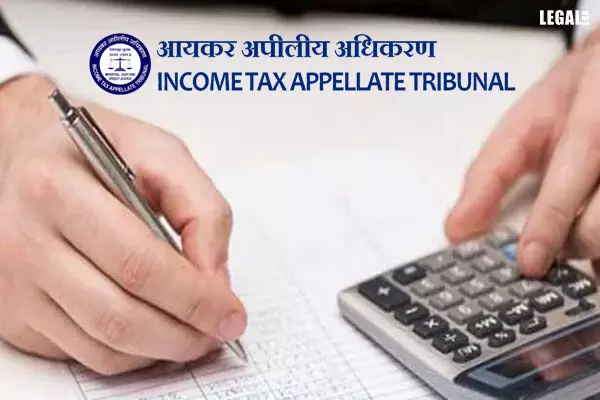- Home
- News
- Articles+
- Aerospace
- Agriculture
- Alternate Dispute Resolution
- Banking and Finance
- Bankruptcy
- Book Review
- Bribery & Corruption
- Commercial Litigation
- Competition Law
- Conference Reports
- Consumer Products
- Contract
- Corporate Governance
- Corporate Law
- Covid-19
- Cryptocurrency
- Cybersecurity
- Data Protection
- Defence
- Digital Economy
- E-commerce
- Employment Law
- Energy and Natural Resources
- Entertainment and Sports Law
- Environmental Law
- FDI
- Food and Beverage
- Health Care
- IBC Diaries
- Insurance Law
- Intellectual Property
- International Law
- Know the Law
- Labour Laws
- Litigation
- Litigation Funding
- Manufacturing
- Mergers & Acquisitions
- NFTs
- Privacy
- Private Equity
- Project Finance
- Real Estate
- Risk and Compliance
- Technology Media and Telecom
- Tributes
- Zoom In
- Take On Board
- In Focus
- Law & Policy and Regulation
- IP & Tech Era
- Viewpoint
- Arbitration & Mediation
- Tax
- Student Corner
- AI
- ESG
- Gaming
- Inclusion & Diversity
- Law Firms
- In-House
- Rankings
- E-Magazine
- Legal Era TV
- Events
- News
- Articles
- Aerospace
- Agriculture
- Alternate Dispute Resolution
- Banking and Finance
- Bankruptcy
- Book Review
- Bribery & Corruption
- Commercial Litigation
- Competition Law
- Conference Reports
- Consumer Products
- Contract
- Corporate Governance
- Corporate Law
- Covid-19
- Cryptocurrency
- Cybersecurity
- Data Protection
- Defence
- Digital Economy
- E-commerce
- Employment Law
- Energy and Natural Resources
- Entertainment and Sports Law
- Environmental Law
- FDI
- Food and Beverage
- Health Care
- IBC Diaries
- Insurance Law
- Intellectual Property
- International Law
- Know the Law
- Labour Laws
- Litigation
- Litigation Funding
- Manufacturing
- Mergers & Acquisitions
- NFTs
- Privacy
- Private Equity
- Project Finance
- Real Estate
- Risk and Compliance
- Technology Media and Telecom
- Tributes
- Zoom In
- Take On Board
- In Focus
- Law & Policy and Regulation
- IP & Tech Era
- Viewpoint
- Arbitration & Mediation
- Tax
- Student Corner
- AI
- ESG
- Gaming
- Inclusion & Diversity
- Law Firms
- In-House
- Rankings
- E-Magazine
- Legal Era TV
- Events
ITAT rules tax addition not allowed when genuineness of affluent investors is furnished

ITAT rules tax addition not allowed when genuineness of affluent investors is furnished
Upholds the order of the Commissioner of Income Tax (Appeals)
The Kolkata bench of the Income Tax Appellate Tribunal (ITAT) has held that tax addition under the Income Tax Act,1961 is not permissible when the assessee has furnished all evidence proving the identity and creditworthiness of the investors.
The case of the assessee company KDG Projects Pvt. Ltd was selected for scrutiny under Cass information system, and it was issued statutory notices.
The company was incorporated in 2005 and in the Financial Year 2011-2012, it issued equity shares to various private limited companies at a high premium. The assessee filed its Income Tax Return (ITR) declaring a total income of Rs.19,88,060.
The company was asked by the assessing officer (AO) to furnish various details/evidence/information, which the assessee fulfilled. But the AO added the entire share capital and share premium of Rs.3,15,00,000 to the income of the assessee on the ground that the genuineness and creditworthiness of the investors were not proved.
However, the assessee contended that the appellate order was passed after a detailed analysis and examination of all evidence and factual findings were recorded by CIT(A). The genuineness of the transactions and the creditworthiness of the parties were also proved.
The bench comprising Sanjay Garg (judicial member) and Rajesh Kumar (accountant member) observed that the AO made the addition merely on the basis that the shares were issued at a very high premium without any justification.
But the CIT(A) passed a reasoned order after following various decisions and considering the evidence of nine investor companies. It verified their ITR acknowledgements, audited accounts, share application forms, PAN cards, bank statements, audited accounts, and source of funds for making the investments.
The tribunal observed that the AO made the addition stating that no compliance was made to the summons issued to the assessee and the investors. But this could not be the basis for making an addition, as the assessee had filed the necessary documents before the authorities proving the investor's identity, creditworthiness, and genuineness of the transactions.
Dismissing the appeal of the revenue department, the tribunal ruled in favor of the assessee.




